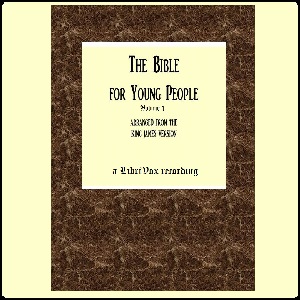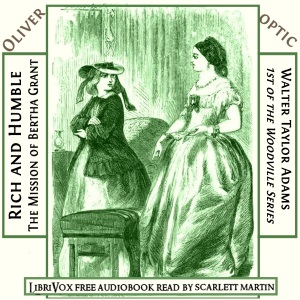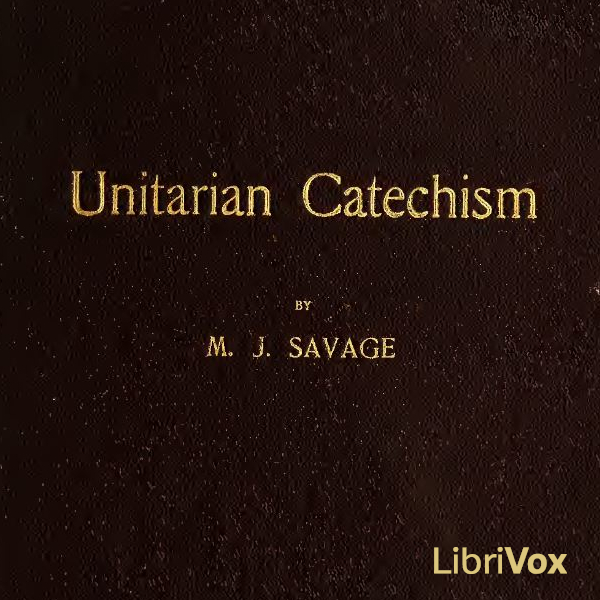
My Path to Atheism is a remarkable document in many ways, not least that it was written by a woman in Victorian England, not the most open free-thinking of societies, especially for women at that time. It needed a remarkable woman to write such a revolutionary and to 19th century minds, heretical document in a society where the Church had such a stronghold. Besant herself was originally married to a clergyman, but her increasingly anti-religious views and writings led to a legal separation. She went on to become a member of the National Secular Society and thence to co-edit the National Reformer, which put forth ideas on revolutionary ideas at the time such as trades unions, national education, birth control and so on. In 1877 Besant published this book 'My Path to Atheism' which was compiled from a series of lectures in which she surgically dissects the basic tenets of Christianity. As one reads the chapters, one can follow the evolution of her ideas from Theism to Atheism, ending up with a stunning refutation of the Church of England Catechism. (Summary by Kevin Green)
26 episodes
Even before the Great War turned the world upside down, Western civilization was being revolutionized at all levels: intellectually, philosophically, artistically. Noted positivist philosopher George Santayana published this volume on the eve of the War, trying to portray the status of philosophy and theology at that moment by analyzing six significant topics: 1. the intellectual "temper" of the age 2. the clash between Modernism and Christianity 3. the new idealism of Henri Bergson 4. the new skepticism of Bertrand Russell 5. Shelley's fusion of philosophy and poetry 6. the so-called "genteel" tradition in American philosophy. - Summary by Expatriate
14 episodes
The Sweet Stories of God's Word in the Language of Childhood.
41 episodes
Stories in which ghosts of dogs figure. This is chapter 2, Apparitions Of Dogs, of the book Animal Ghosts Or, Animal Hauntings and the Hereafter.
- Summary by david wales
4 episodes

Brother Lawrence was born Nicholas Herman around 1610 in Herimenil, Lorraine, a Duchy of France. His birth records were destroyed in a fire at his parish church during the Thirty Years War, a war in which he fought as a young soldier. It was also the war in which he sustained a near fatal injury to his sciatic nerve. The injury left him quite crippled and in chronic pain for the rest of his life.
The details of his early life are few and sketchy. However, we know he was educated both at home and by his parish priest whose first name was Lawrence and who was greatly admired by the young Nicolas. He was well read and, from an early age, drawn to a spiritual life of faith and love for God.
We also know that in the years between the abrupt end of his duties as a soldier and his entry into monastic life, he spent a period of time in the wilderness living like one of the early desert fathers. Also, prior to entering the monastery, and perhaps as preparation, he spent time as a civil servant. In his characteristic, self deprecating way, he mentions that he was a "footman who was clumsy and broke everything".
At mid-life he entered a newly established monastery in Paris where he became the cook for the community which grew to over one hundred members. After fifteen years, his duties were shifted to the sandal repair shop but, even then, he often returned to the busy kitchen to help out.
In times as troubled as today, Brother Lawrence, discovered, then followed, a pure and uncomplicated way to walk continually in God's presence. For some forty years, he lived and walked with Our Father at his side. Yet, through his own words, we learn that Brother Lawrence's first ten years were full of severe trials and challenges.
A gentle man of joyful spirit, Brother Lawrence shunned attention and the limelight, knowing that outside distraction "spoils all". It was not until after his death that a few of his letters were collected. Joseph de Beaufort, representative and counsel to the local archbishop, first published the letters in a small pamphlet. The following year, in a second publication which he titled, 'The Practice of the Presence of God', de Beaufort included, as introductory material, the content of four conversations he had with Brother Lawrence.
In this small book, through letters and conversations, Brother Lawrence simply and beautifully explains how to continually walk with God - not from the head but from the heart. Brother Lawrence left the gift of a way of life available to anyone who seeks to know God's peace and presence; that anyone, regardless of age or circumstance, can practice -anywhere, anytime. Brother Lawrence also left the gift of a direct approach to living in God's presence that is as practical today as it was three hundred years ago.
Brother Lawrence died in 1691, having practiced God's presence for over forty years. His quiet death was much like his monastic life where each day and each hour was a new beginning and a fresh commitment to love God with all his heart. (preface and wikipedia)
2 episodes
"The Man Who Dared a King" is a simple children's story of St. John Fisher, the heroic bishop who chose Christ over Henry VIII. (Adapted from jacket summary)
16 episodes

"The Bible for Young People tells the sweet and simple stories of the Bible in the Bible language, omitting only genealogies and doctrines, and whatever is generally regarded as unprofitable to young readers. Moreover, it is so divided into subjects, forming complete stories, that the child will be interested in every part of it. ...
Verse divisions have been disregarded, and a totally new system of chapters introduced in place of the familiar ones, and it is hoped that this novelty will give fresh interest to the old book. One of the features which will be appreciated is the table of contents, giving the subject of each book and its subdivisions, so that one may readily turn to any Bible story of which he is in search.
With great discrimination and sympathy, the compiler, Mrs. Joseph B. Gilder, has accomplished this task, and the book now stands as the embodiment of what is universally considered the best in the Bible for young people, "best" meaning here what is most suited to the minds of girls and boys and appropriate to their moral range. " Volume 1 comprises the stories of the Old Testament. - Publisher's note
160 episodes
Child of an atheist father and a devoutly Catholic mother, Tommy has been from childhood the object of a battle of love. Tommy’s courage and unfailing loyalty to his Faith help him to overcome obstacles which threaten his whole future with spiritual tragedy.
Brother Ernest Ryan, was a Holy Cross Brother, the founder of and a prolific author for the Dujarie Press, a Catholic publishing house of Juvenile Saint books for children in the 1950’s and 1960’s. He wrote numerous juvenile biographical saint books for children, as well as several children’s fictional titles – of which this is one. (Summary from an original jacket and Maria Therese)
14 episodes

"The Bible for Young People tells the sweet and simple stories of the Bible in the Bible language, omitting only genealogies and doctrines, and whatever is generally regarded as unprofitable to young readers. Moreover, it is so divided into subjects, forming complete stories, that the child will be interested in every part of it. ...
"Verse divisions have been disregarded, and a totally new system of chapters introduced in place of the familiar ones, and it is hoped that this novelty will give fresh interest to the old book. One of the features which will be appreciated is the table of contents, giving the subject of each book and its subdivisions, so that one may readily turn to any Bible story of which he is in search.
"With great discrimination and sympathy, the compiler, Mrs. Joseph B. Gilder, has accomplished this task, and the book now stands as the embodiment of what is universally considered the best in the Bible for young people, "best" meaning here what is most suited to the minds of girls and boys and appropriate to their moral range." Volume 2 comprises the stories of the New Testament. - Summary from Publisher's note
100 episodes
When his father dies, Lucius Lepine goes to Spain as a clerk. His fellow clerk, Don Aguilera, doesn't come to work one day. Lucius is worried, he has heard rumors of what has happened to Aguilera. What has happened? Can Lucius find out? - Summary by EstherbenSimonides
35 episodes

A new story by Father Finn! It will be glad news to many to learn that Father Finn has found time from his many duties to write a new story, and such a story! From the opening chapter to the last page of the book the interest never lags. The plot is very simple, turning on a prize contest for pianos offered by certain newspapers to the school, society or club that receives the greatest number of coupons. Of course, this calls for keen competition on the part of the young people of the city, and it is in this contest that Michael Desmond, "That Office Boy," figures prominently. The characters in the book are just those people that Father Finn delights in drawing—people that we meet every day, that we know intimately—good, straightforward folks and others, too, that we would not care to associate with. What the result of the contest is, who the successful competitors are, must be learned by reading the story.
Of course, there is a strain of Father Finn's delightful humor running through the book, with here and there a touch of genuine pathos that brings the tears to our eyes. Father Finn has so long been recognized as a master of fiction that he needs no words of commendation. Suffice it that "That Office Boy" is the equal of anything he has ever written. - Summary by American Catholic Quarterly Review
18 episodes
On a dark and story night, the Coombers find a little girl. Who is she? - Summary by EstherbenSimonidesProof Listening provided by Fiddlesticks and Tawnya Roy
8 episodes
George Herbert was an English poet, orator, and priest. In The Country Parson he describes the roles of the priest and offers practice advice to English clergymen about how to fulfill their duties. - Summary by Karen Clausen-Brown
40 episodes
Mildred Keith has a good life in Lansdale, Ohio - family, friends and school keep her happy and busy. But when her parents announce they're all moving to Indiana, Mildred's faith is tested beyond anything she could have imagined. Through good times and bad, follow Mildred and her family as they learn to rely on the Lord for strength in every circumstance!
This project was proof-listened by Adele de Pignerolles and Linette Geisel. - Summary by Rachel
26 episodes
These are beautiful little stories about Christmas from the Swedish storyteller Selma Lagerlöf. As she explains in the first story, they were told her by her grandmother "I remember that grandmother told story after story from morning till night, and that we children sat beside her, quite still, and listened. It was a glorious life! No other children had such happy times as we did. It isn’t much that I recollect about my grandmother. I remember that she had very beautiful snow-white hair, and stooped when she walked, and that she always sat and knitted a stocking. And I even remember that when she had finished a story, she used to lay her hand on my head and say: “All this is as true, as true as that I see you and you see me.” - Summary by Phil chenevert
14 episodes
This charming allegory will bring to the heart of the child a deep love for Our Lord in the Blessed Sacrament and an understanding of the graces received in Holy Communion. We follow with delight the little Dilecta in her meetings with The King; her struggles against the evil influence of Malignus, in which she is so ably helped by the Prince Guardian; from the hut in which she lived and where The King so often and so graciously visited her -- right into His Golden City. (Summary from The Catholic World, Volume 114)
20 episodes
A collection of short stories about many people. Some being tested, some being rewarded, all worth rereading! Many of them are the type to build character and inspire the readers to become men and women for God. They include various missionary, home and school stories. Numerous poems are also found sprinkled through this book.( Trotsa)
99 episodes

Swedenborg, Emanuel, 1688-1772, was born in Stockholm, Sweden and died in London, England. He was a voluminous writer of scientific treatises as well as prophetic works such as Archana Caelestia and The Divine Providence. He said he had encountered supranational agencies and communicated with angels. This is a recording of the 1849 translation of his 1743 book The Soul or Rational Psychology (Regnum Animale, Pars Septima De Anima) Latin. He took his cue from Aristotle's De Anima.
A few quotes
It has been shown above that the harmonies themselves are innate with us, or that we perceive them without a teacher; as the sweetnesses of taste and smell, the symmetries of sound, the excellencies and beauties of nature; in a word, the very order of things or the harmony of modes, forces, substances, and forms. Thence also we may perceive the very truths of things, for these correspond to the order itself in nature; and this is the reason why order is called "the transcendental truth."
In order that the human intellect may exist, it is necessary that the truths themselves be variegated and as it were modified by things mendacious, or true things with false, good with evil.
There are as many worlds as there are terrestrial societies, and there are as many heavens as there are celestial societies. The love of society is both natural and acquired, for to live alone or to live without society is not to live, for whatever is one's own is not known as one's own except from others, or relatively.
When we strive for and desire what we love, and yet impossibilities interfere with our attaining our end, we call this state of desire hope, and it seems to be in the will viewed as an endeavour which these obstacles are preventing from coming forth into act and motion. Thus hope is not an affection of the mind, but of its will. For the will always endeavours to act, but so long as it is resisted does not act. Meanwhile it is affected by a certain hope, so that it remains balanced between action and inaction. Despair exists when we cut off hope; then also when, in the end itself, love and ambition, that is, the life and ardour of the mind, collapse and are as it were extinguished.
There is a liberty of thinking and a liberty of acting; and in the middle between these two there is as it were the liberty of choosing , in which properly free will consists; and that our mind is not capable of ruling whether the objects of the senses and their exciting influences, both from the body and the world, shall flow in or not, but it is capable of choosing whether these sensations and excitements shall flow out and be determined into act."
This third edition of the 1849 translation was published in 1914. Johann Friedrich Immanuel Tafel, 1796-1863 devoted himself to translating Swedenborg into German, and Frank Sewall, 1837-1915 into English. Sewall included a long introduction and three appendixes to Swedenborg's work. The introduction is included in this reading but the appendixes have been omitted.
49 episodes

Rabbi Louis Ginzberg was one of the outstanding Talmudists of the twentieth century. He was born on November 28, 1873, in Kovno, Lithuania; he died on November 11, 1953, in New York City. Ginzberg taught at the Jewish Theological seminary from 1903 to 1953. For 50 years, he trained two generations of Conservative Rabbis.
The Legends of the Jews is an epic 7-volume compilation of traditional Jewish stories loosely related to the Bible. Volumes 1-4 contain the stories, while volumes 5-7 contain Ginzberg's notes and commentary. Over the millenia, these stories, which expand on the Bible, flesh out the lives of biblical figures. In the process, they help bring to life the Bible's valuable lessons.
The Legends of the Jews has been called a monumental work of scholarship. It is studied by serious students of both Judaism and Christianity. And yet the stories continue to be accessible and understood by all. They were designed to impart lessons of the Torah, and any child or adult will find much to enjoy about this work. (Summary by Scott Sherris and Wikipedia)
Volume 3 covers BIBLE TIMES AND CHARACTERS FROM THE EXODUS TO THE DEATH OF MOSES
132 episodes
This is a collection of three sermons by Henry van Dyke, dealing with the subject of peace in the immediate aftermath of World War I. As peace has not been forthcoming, the sermons are still timely until today. - Summary by Carolin
4 episodes
Thirty-one brief morning devotionals, simple enough for the child audience for which they were written, but also inspiring for adults needing some spiritual refreshment. ( Jael Baldwin)
31 episodes
According to Jewish tradition the 5 books of Moses (Genesis, Exodus, Leviticus, Numbers and Deuteronomy) are read and studied each year. In order to complete the study, the 5 books are separated into sections (parshah). The last book of the Pentateuch - Deuteronomy is presented according to weekly parshah.
Praised are You, Adonai, Our G_d, ruler of the Universe, who has made us holy with commandments and commanded us to engage in the study of Torah. Parshat descriptions provided by Wikipedia.
11 episodes
James Allen was a British philosophical writer known for his inspirational books and poetry and as a pioneer of the self-help movement. Allen wrote about complex subjects such as faith, destiny, love, patience, and religion but had the unique ability of explaining these subjects clearly and in a way that is easy to understand.His best known work, As a Man Thinketh, has been mass-produced since its publication in 1903. Morning and Evening Thoughts was published in 1909 and it provides a thought for each morning and evening of the day for a month. This book, compiled by his wife, Lily Allen, draws on quotes and sayings from Allen’s other works.
4 episodes
This is the first story in the Woodville collection of tales about the interesting people in Woodville. As the characters grow, they learn many lessons. This is the story of Bertha Grant and her brother, Richard Grant. One of these siblings is good and wise living their life for a higher purpose. The other has to overcome many trials to learn what is truly important in life. The second story in the series is entitled In School and Out; The Conquest of Richard Grant. Summary by Scarlett Martin
Woodville Series:
Rich and Humble; or, The Mission of Bertha Grant
In School and Out; or, The Conquest of Richard Grant
Watch and Wait; or, The Young Fugitives
Work and Win; or, Noddy Newman on a Cruise
Hope and Have; or, Fanny Grant Among the Indians
Haste and Waste; or, The Young Pilot of Lake Champlain
20 episodes
The trees, flowers, and animals of a peaceful pasture meet together to discuss and learn of theology. Summary by Scarlett Martin.
6 episodes
The second volume of the Woodville Stories contains the experience of Richard Grant, "in school and out." We are sorry to say that Richard had become a bad boy, and was in the habit of getting into the most abominable scrapes, some of which are detailed in the first chapters of this book. But he is not what is sometimes called a vicious boy, for he has many good qualities, which redeem him from absolute condemnation. There is something noble in his character, which is the germ of his ultimate salvation from the sins which so easily beset him. The third book in the Woodville series is Watch and Wait; The Young Fugitives. Summary by Book Preface
Woodville Series:
Rich and Humble; or, The Mission of Bertha Grant
In School and Out; or, The Conquest of Richard Grant
Watch and Wait; or, The Young Fugitives
Work and Win; or, Noddy Newman on a Cruise
Hope and Have; or, Fanny Grant Among the Indians
Haste and Waste; or, The Young Pilot of Lake Champlain
22 episodes

One soft summer evening, when Woodville was crowned with the glory and beauty of the joyous season, three strangers presented themselves before the Grant family, and asked for counsel and assistance. The party consisted of two boys and a girl, and they belonged to that people which the traditions of the past have made the "despised race;" but the girl was whiter and fairer than many a proud belle who would have scorned her in any other capacity than that of a servant; and one of the boys was very nearly white, while the other was as black as ebony undefiled. They were fugitives and wanderers from the far south-west; and the story which they told to Mr. Grant and his happy family will form the substance of this volume. - Summary from Chapter 1 of text
Listeners, please be advised that this book contains material related to slavery which some may find offensive. These types of actions and language were common during the historical period during which this account is written.
Woodville Series:
Rich and Humble; or, The Mission of Bertha Grant
In School and Out; or, The Conquest of Richard Grant
Watch and Wait; or, The Young Fugitives
Work and Win; or, Noddy Newman on a Cruise
Hope and Have; or, Fanny Grant Among the Indians
Haste and Waste; or, The Young Pilot of Lake Champlain
24 episodes
The fifth volume of the Woodville stories contains the experience of Fanny Grant, who from a very naughty girl became a very good one, by the influence of a pure and beautiful example. The story is not an illustration of the "pleasures of hope;" but an attempt to show the young reader that what we most desire, in moral and spiritual, as well as worldly things, we labor the hardest to obtain—a truism adopted by the heroine in the form of the principal title of the volume, Hope and Have. Previous book in the series is Noddy Newman on a Cruise. The 6th and final book of the series is Haste and Waste. - Summary by Scarlett Martin from book preface
Woodville Series:
Rich and Humble; or, The Mission of Bertha Grant
In School and Out; or, The Conquest of Richard Grant
Watch and Wait; or, The Young Fugitives
Work and Win; or, Noddy Newman on a Cruise
Hope and Have; or, Fanny Grant Among the Indians
Haste and Waste; or, The Young Pilot of Lake Champlain
21 episodes
This 1866 book was published in a time of great change in the Church of England. Trollope began as a High Church adherent and then worked his way to a Broad Church stance, a theological liberalism (toleration of belief and interpretation, regard for the individual conscience, a willingness to tolerate the ambiguity of finding truth in the extremes as well as the middle). This book deals with a crisis of faith and a crisis of structural form in the Victorian Church of England. It possesses all the interesting attributes of the novelist’s style. Note on the final chapter: John William Colenso (1814 – 1883) was a British mathematician, theologian, Biblical scholar and social activist, who was the first Church of England Bishop of Natal. His progressive views on biblical criticism and treatment of African natives were controversial. - Summary by David Wales
10 episodes
When Martin Luther promulgated his “95 Theses” 1n 1517, he probably did not envision the initiation of the historical division of the indivisible Church, beginning what we now know as the Protestant Reformation. For his opposition to such practices as indulgences and Papal infallibility, he was excommunicated by Pope Leo X, and later, at the Diet of Worms, was declared an outlaw of the state. Luther made use of the new printing technology of Gutenberg to disseminate his writings.
The first publication of his “Table Talk” (Colloquia Mensalia) was in 1566 arranged into 80 chapters. The complete work was published in Stuttgart and Leipzig in 1836 in the equivalent of 2,780 pages. Captain Henry Bell undertook the translation of these selections from the high German and published it in 1561. The topics are drawn from conversation with many of the great minds of Luther’s day and cover topics from The Word of God to Imperial Diets.
- Summary by Larry Wilson
19 episodes
A short sweet, yet sad, Christmas story about forgiveness, but especially about loving others for who they are and not for who we want them to be. - Summary by The Reader
4 episodes
Elsie and her family travel to Nantucket Island to spend the summer. The Raymond children and others learn important lessons. After a delightful summer, they journey on to Lansdale, Ohio to visit Aunt Wealthy. - Summary by Amy
15 episodes
Henry Martyn (1781-1812), a brilliant and ambitious young student in Cambridge, England, was led by God to be a missionary to India and Persia. While pastoring, starting schools, and teaching the locals as well as Europeans through his role as chaplain for the East India Company, he worked on several far-reaching Bible translations. All this despite much weakness and illness due to harsh climates and difficult travels. This short life of 31 years is a testament to the power of God to work through one life fully dedicated to Him. (Summary by HannahMary)
15 episodes

The Book of Enoch, is an ancient, non-canonical Jewish work. Estimates vary on the actual dates of authorship. However, Enoch was alive during the Antediluvian period as recorded in the Hebrew Bible. Fragments of the text, were discovered in cave 4 of the Qumran caves in 1948. Enoch, born in the 7th generation from Adam, was the grandfather of Noah. Enoch prophesied concerning the judgments on mankind (Jude 14-15 & Enoch 1:9). Enoch says his prophetic words were not for his generation but for a “generation of elect and righteous people far in the future that would be living in the day of tribulation when all the wicked and godless are to be removed.” (Enoch 1:1). He compiled his visions and prophecies into a book of parables and passed the secrets on to Noah (The book of Enoch 68:1).
Among the secrets passed down, Enoch gives a more detailed accounting of the relationship between the fallen angels (watchers) and the daughters of men in Genesis 6:2-4. He reveals the secrets of the luminaries and the weather and concludes with a prophesy concerning the condition of man and purging of the evil on earth. - Summary by CJ Plogue
17 episodes
Full title is "The Curious Lore of Precious Stones, being a description of their sentiments and folklore, superstitions, symbolism, mysticism, use in medicine, protection, prevention, religion, and divination, crystal gazing, birthstones, lucky stones, and talismans, astral, zodiacal, and planetary." Just about everything you ever wanted to know about precious stones, aside from their formation, acquisition, and chemical composition. - Summary by TriciaG
34 episodes
In order to recover her health, Mildred Keith goes to visit her mother's extended family, the Dinsmores, in the South. Mildred makes new friends while at Roselands, learns important lessons and grows in her faith in Christ. (Summary by Amy)
28 episodes
Two young children, recently arrived back in England from India, discover their aunt's old gardener, and together they explore the beautiful hope of springtime, Easter, and eternal life. - Summary by Emily Isabella
4 episodes
The Elements of Theology (ΣΤΟΙΧΕΙΩΣΙΣ ΘΕΟΛΟΓΙΚΗ) was written by the Greek Neoplatonist philosopher Proclus (ΠΡΟΚΛΟΣ) and translated by Thomas Taylor who named his youngest son Thomas Proclus Taylor. This book consists of 211 propositions, each followed by a proof, beginning from the existence of the One (divine Unity) and ending with the descent of individual souls into the material world. Saint Thomas Aquinas recognized that the Liber de Causis (Book of Causes), which had been attributed to Aristotle, was actually a summary of the Elements of Theology, likely written by an Arabic interpreter. - Summary adapted from Wikipedia by Geoffrey Edwards
18 episodes
“As Little Susy had a kind mamma to take care of her, you will, perhaps, wonder why God gave her also, a great many servants of her own. He gave her so many, that you might spend your whole life in reading about them. But I shall tell you of only a very few, and then you can ask your mamma to talk to you about the others.
For the little servants Susy had, you have, too.” - from the first chapter
19 episodes
This is a brief catechism of common Unitarian beliefs. As with most catechisms, the material is presented in a question and answer form. - Summary by KevinS
11 episodes
A biography of Saint Joan of Arc, geared towards children, but also can easily be enjoyed by adults.
13 episodes

This is the ninth volume of the 15-volume series of The World’s Story: a history of the World in story, song and art, edited by Eva March Tappan. Each book is a compilation of selections from prose literature, poetry and pictures and offers a comprehensive presentation of the world's history, art and culture, from the early times till the beginning of the 20th century. Part IX deals with the first part of the history of England, from the early times till the reign of the Tudor kings and queens. Chapters include stories about King Arthur, William the Conqueror, Robin Hood, Queen Elizabeth and many others. - Summary by Sonia
Cast list for A messenger from Rome:
Cymbeline: alanmapstone / Lucius: Jim Locke / Queen: Devorah Allen / Cloten: Tomas Peter / Narrator: Sonia
Cast list for Prince Arthur and the keeper Hubert:
Hubert: Jim Locke / First Executioner: Devorah Allen / Arthur: Tomas Peter / Narrator: Sonia
Cast list for Two scenes in the life of Henry V:
Falstaff: alanmapstone / Prince Hal/King Henry V: Tomas Peter / Host: Monika M.C.r / Warwick: Jim Locke / Chief Justice: Adrian Stephens / Lancaster: Todd HW / Gloucester: SaraHale / Clarence: Sandra Schmit / Narrator: Sonia
Cast list for The fall of Cardinal Wolsey:
Wolsey: Jim Locke / Cromwell: alanmapstone / Narrator: Sonia
81 episodes
Lieder, Gedichte, Märchen und Geschichten, welche sich Singine für sich ausgedacht hat. Alles spielt in ihrer direkten Umgebung und so kommen viele Personen immer wieder vor wodurch man immer vertrauter mit Singine und ihrer Umgebung wird. Da sie keine Geschwister hat, liest sie alles dem Jagdhund Dorkas vor. Ihr Onkel rät ihr alles aufzuschreiben, was sie dann auch tut. - Summary by lorda
30 episodes
Dr. Pascal brings us the Theosophic knowledge to reincarnation. He discusses four main topics: 1). The Soul and the Bodies, 2). Reincarnation and the Moral Law, 3). Reincarnation and Science, and 4). Reincarnation and the religious and philosophical concensus of the ages - Summary by kirk202
11 episodes
Most of the boys in the Catholic school called Milwaukee College are engrossed with baseball and keeping up with their studies. When twelve year old Claude Lightfoot is transferred into the school, he has a rocky time of it. While Claude excels in baseball and other playground activities, he also has a knack of annoying the other boys, particularly one who is a mean bully. And though Claude is mentally bright, his hyperactive classroom behavior is a trial to his teacher. The problem that must be solved is whether Claude can settle down to become a responsible young man capable of self control. Along the way he must cope with a series of trials and obstacles, especially as he tries to achieve his great goal: to be worthy to make his first Holy Communion. - Summary by Carol Pelster
24 episodes












































